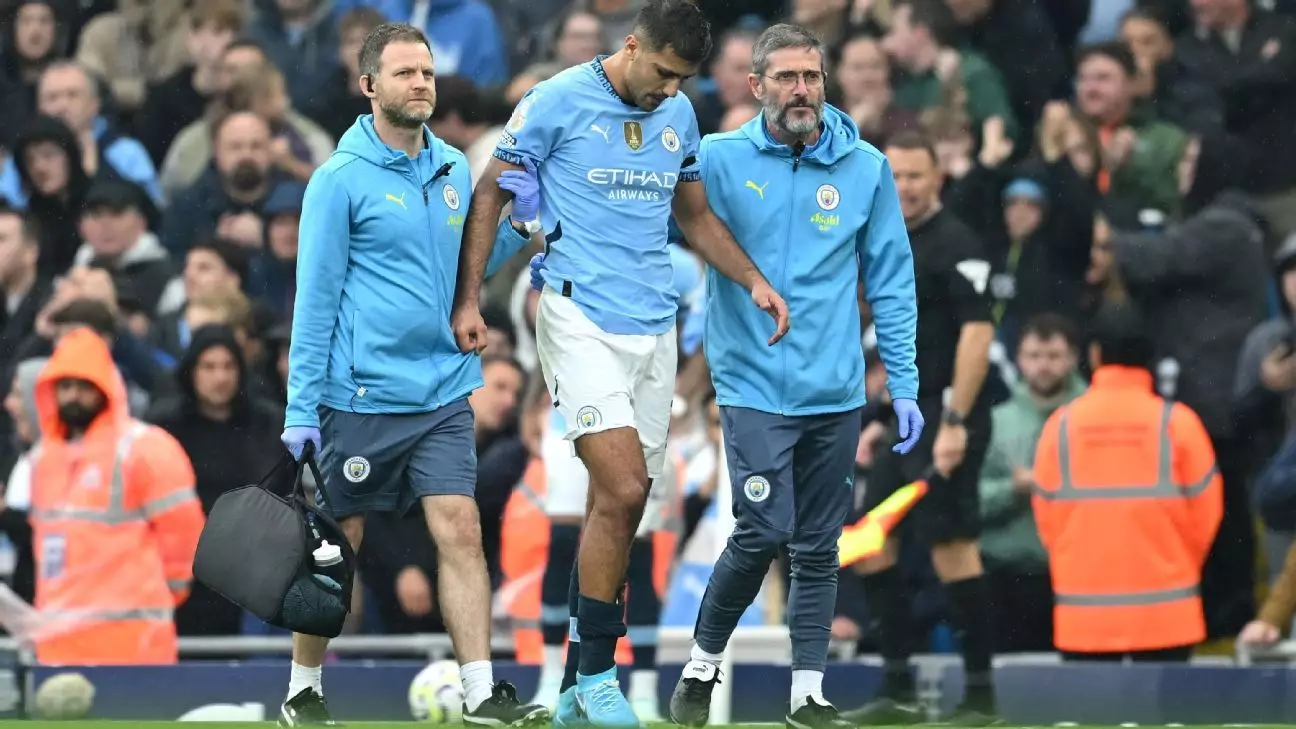In recent weeks, the conversation surrounding fixture congestion in professional football has taken center stage, with authoritative voices calling attention to the impending consequences for players and the game itself. Javier Tebas, the president of LaLiga, has identified a growing risk of players potentially staging a strike in response to their mounting frustrations. The situation underscores a crucial dilemma: how to balance the demands of an expanding football calendar with the health and well-being of the athletes that fuel this global phenomenon.
One of the primary catalysts for this predicament is the expansion of UEFA’s club competitions alongside FIFA’s revamped Club World Cup. This season is poised to become the most extended club campaign in history, drastically increasing the number of fixtures players must contend with. With elite players like Manchester City’s Rodri vocalizing concerns about this overwhelming schedule, it signals a broader recognition among football professionals that they are at risk of burnout. Leading figures in football, including premier league managers like Pep Guardiola and Mikel Arteta, echo this sentiment, stating that exhaustion among players is becoming untenable.
The sheer volume of matches, particularly in the context of additional international commitments, places immense pressure on athletes. Players are expected to perform at peak levels over an extended period, which is not only physically demanding but also mentally taxing. Javier Tebas has articulated the need for a constructive dialogue surrounding the calendar and the symptoms of players’ distress. His remarks highlight an urgency to reassess the structure of football’s competitive framework and advocate for the players’ rights to voice their grievances and push for necessary reforms.
The increasing toll on players has sparked discussions among them regarding a potential strike—a significant and unprecedented move that could reshape the football landscape. Tebas has readily acknowledged the seriousness of this threat, breaking it down into simple terms: the current model is unsustainable. Declaring that “two plus two cannot equal six,” Tebas emphasizes the fundamental need for rationality in scheduling. Football is not just a game; it is also a profession that demands recognition of athletes’ rights and needs.
Prominent voices from within the ranks of players have expressed their readiness to take collective action. Should this escalation occur, it would reflect a profound shift in the power dynamics of football, with athletes demanding more influence over their working conditions. While the notion of players striking is radical, it underscores a growing urgency for stakeholders, including FIFA and various football associations, to re-evaluate the structure and distribution of fixtures to prioritize player welfare.
Addressing these challenges requires collaboration among all key stakeholders. FIFA, LaLiga, national leagues, and player associations must come together to seek practical solutions that respect the integrity of the sport while safeguarding the athletes’ health. Tebas argues that proper consultation must take place when organizing tournament schedules, suggesting that without dialogue and agreement among different factions of the football hierarchy, the well-being of players may continue to be compromised.
Tebas also discussed LaLiga’s ambition to broaden its global footprint, particularly with plans to host games in the U.S. This prospect, while promising for international expansion, raises questions about fixture congestion. Would such initiatives exacerbate the existing problem, or could they provide creative solutions to the scheduling dilemma? It is essential for LaLiga to tread carefully to ensure that, while pursuing growth, player welfare remains at the forefront of any strategic decision-making processes.
As the football community stands on the precipice of potential unrest, it grapples with the implications of extending seasons and increasing workloads. The prospect of a players’ strike, articulated by impactful figures like Rodri and backed by influential managers, serves as a sharp wake-up call to all involved. It underlines the necessity for urgent action and meaningful dialogue among relevant stakeholders.
In a sport so rich in history and passion, the importance of protecting the players—a cornerstone of football’s allure—cannot be overstated. As the season progresses, it becomes increasingly clear that the structures governing football require a reevaluation to ensure sustainability and fairness for both the players and the integrity of the beautiful game. Without timely intervention, the beautiful game may find itself tangled in a web of discord, risking not only its players but its very essence.

